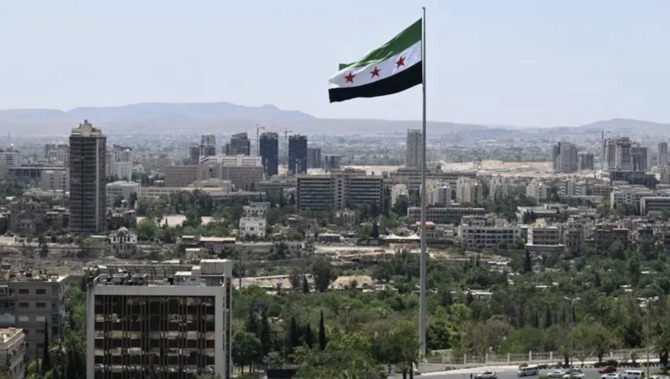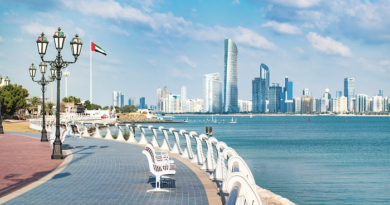US Urges UN to Ease Syria Sanctions, Support Transition
New York — The United States has urged the United Nations Security Council to ease sanctions on Syria as part of a broader effort to stabilize the country and support its ongoing political transition.
The appeal reflects growing international consensus that economic relief and political inclusion are key to securing sustainable peace in post-conflict Syria.
US Permanent Representative to the UN, Mike Walz, told council members that easing sanctions would be “a crucial step in helping Syria rebuild and move toward a democratic and inclusive future.”
He emphasized that President Donald Trump’s recent executive order formally ending Washington’s broader sanctions program on Syria provides a unique opportunity to reset international engagement with the nation.
“Further relief is critical to giving Syria a chance,” Walz said. He called on UN member states to work together in lifting certain restrictions imposed under previous Security Council resolutions, adding that Syria now stands at “a historic crossroads” after the fall of the Assad regime.
While targeted sanctions remain on individuals and entities connected to past human rights violations, narcotics trafficking, or terrorism, the order also authorizes reviews and partial easing of export controls. The US envoy noted that the new approach prioritizes accountability, humanitarian access, and economic revitalization.
Walz reaffirmed that the United States remains committed to a Syria that is “stable, sovereign, and vibrant,” stressing the importance of political inclusion. “All Syrians should have a meaningful stake in the country’s governance. There can be no progress without this assurance,” he said.
UN Envoy Supports Sanctions Relief
UN Deputy Special Envoy for Syria Najat Rochdi echoed the call for sanctions relief, saying that “lifting restrictions, alongside domestic reforms, is essential for the success of the political transition.” Speaking from Damascus, Rochdi highlighted that sanctions have hindered reconstruction and humanitarian access, slowing the pace of progress.
She welcomed the US initiative to repeal the Caesar Act, a law passed in 2019 that imposed sweeping sanctions on the Assad regime, calling it “a step in the right direction.” However, she cautioned that the political transition must meet the expectations of Syrians, particularly women and minority groups, who remain underrepresented in the transitional parliament and other political processes.
“Women were consistently underrepresented,” she said, urging future elections to ensure stronger participation and safeguard women’s rights.
Progress Toward Stability and Reform
Syria’s Permanent Representative to the UN, Ibrahim Olabi, presented an optimistic picture of the nation’s progress. He outlined a series of reforms and initiatives aimed at strengthening governance, accountability, and cooperation with international organizations.
“Syria is present, active, listening, and taking decisions,” Olabi said, describing the recent parliamentary elections as “the beginning of a new era of freedom.” He highlighted that over 1,500 citizens participated as candidates for 119 seats, marking a significant step toward democratic engagement.
He also emphasized Syria’s ongoing cooperation with the Organization for the Prohibition of Chemical Weapons, counterterrorism efforts, and initiatives to combat drug trafficking — issues that had previously strained relations with the international community.
“Today, we are writing our history with our own hands,” Olabi declared. “This is a once-in-a-lifetime opportunity for the world to partner with Syria as it rebuilds one of the most ancient civilizations on Earth.”
International Support and Humanitarian Challenges
Oman, speaking on behalf of the Arab Group, voiced strong support for the Syrian government’s stabilization and reconstruction efforts. The group called for international collaboration to ensure security, restore institutions, and expand development programs.
The UN’s humanitarian office reported that more than 70 percent of Syrians continue to rely on assistance due to ongoing challenges such as drought, displacement, and the remnants of war.
Despite the hardships, humanitarian agencies reach about 3.4 million people monthly, although funding shortages threaten critical services like water supply and protection for women.
Ramesh Rajasingham, representing the UN humanitarian chief, said that “de-escalation, more funding, and tangible investments in reconstruction” are necessary to accelerate Syria’s recovery.
A Moment of Opportunity
Walz concluded on a hopeful note, expressing optimism for Syria’s future. “Syria has before it a historic opportunity,” he said. “With unity, inclusion, and continued international support, the time to act is now.”
He reaffirmed that the United States will continue to back a Syrian-led reconciliation process, support regional peacebuilding, and encourage the participation of all Syrians — regardless of gender, ethnicity, or political background — in shaping the nation’s democratic future.
As Syria rebuilds, calls for easing sanctions are seen as a vital step toward achieving stability, growth, and lasting peace in the region.



